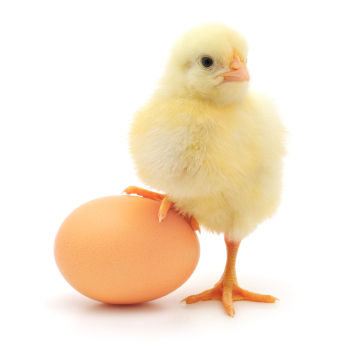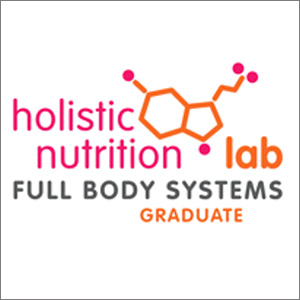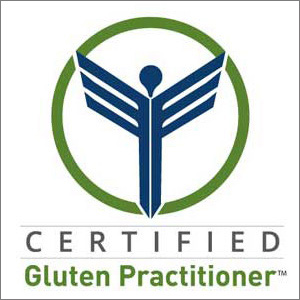 Are you committed to eating a healthy diet?
Are you committed to eating a healthy diet?
If so, you already know that being a diligent label reader is helpful.
When you add a special dietary protocol to the mix, it becomes all the more crucial. Whether you’re contemplating a gluten-free diet – or you’re already gluten-free – rest assured that it quickly becomes second nature, as you become ever mindful that gluten can often be sneaky – showing up where you’d least expect it.
At the same time, it’s a bit of a double-edged sword! What not-so-great choices could you be making instead?
What is the trade-off?
Let me share what I mean.
Back when I first became gluten-free, I started eating a lot more eggs. I was baking my own gluten-free bread, and the standard recipe called for three or four eggs per loaf – and since eggs are gluten-free, I thought nothing of it.
At least once a week, we’d have omelets for dinner – or even breakfast. On occasion, I’d even whip up a soufflé. (Sounds fancy, I know, but soufflés are actually pretty easy to make).
Then almond meal hit the market, and it seemed like a wonderful alternative to gluten-free flours.
Being an almond lover myself, I was ecstatic!
In a given week, I poured almond milk on my breakfast cereal and snacked on almonds by the handful. And before I knew it, I started experiencing many of the symptoms I’d had BEFORE going gluten-free.
What was that all about?
Long story short, I eventually learned that I was highly sensitive to both eggs, almonds – and even dairy.
You’d think that was the end of it, right?
Believe it or not, knowing what other foods you might be sensitive to is only the tip of the iceberg. This is why, a whole-foods diet that steers clear of processed foods – based, instead, on fresh fruits and vegetables (organic when possible), grass-fed meat, wild-caught fish, gluten-free whole grains, and legumes – is considered ideal, whether gluten-free, or non.
With that in mind, here’s what else you need to be diligent about when reading labels.
Sugar, Salt & Fat
This little trifecta of condiments is something to be on the lookout for whenever you shop for groceries.
The thing is, even though your favorite packaged cookies might be gluten-free – that doesn’t mean they are any better for you than regular chocolate chip cookies.
As an occasional treat, they’re fine.
But if you’re relying on packaged goods day in and day out – then you’re likely ingesting way more salt, sugar and added fat than your body can handle.
To make matters worse, manufacturers have gotten very sneaky about this – whether or not you’re gluten-free, they know exactly how to manipulate your favorite foods, and keep you coming back for more.
Chemicals & Preservatives
Along with added fat and sugar, those processed foods that so many of us have come to rely on – like gluten-free breads, cakes and cookies – are also laden with chemicals and preservatives, and therefore just as important to be aware of.
In a nutshell, your body is likely still healing from the onslaught of gluten, and other foods, that you didn’t know you were so sensitive to – during all those years you were still consuming it.
And while you’ve given up gluten, chances are you’ve done what so many of us do in the beginning – you run to your local grocery store and stock up on the basics.
Things like gluten-free bread, cookies and crackers, and all that stuff you crave, that you can no longer have – unless it’s gluten-free.
A girls got to eat, after all!
Here’s my challenge to you:
Next time you’re shopping for groceries, take another look at the labels and see what else might be hiding in the package – beyond the basic flours and seasonings.
Are there ingredients listed that you don’t have a clue what they might be? Words you can’t pronounce?
Does it contain a lot of sugar?
(Hint: Ingredients are listed according to amount; in other words, the more there is of a particular ingredient, the closer it will be to the top of the list. What this tells you, is that if sugar is one of the first items listed, then you know there’s a lot of it.)
What are the hidden trade-offs?
GMO’s & Things
Some people are referring to genetically modified organisms in the food supply (aka GMO’s) as an extremely risky human experiment.
In Europe and many other countries there’s a strict ban on GMO foods – until they’re proven safe, yet the United States remains one of small handful of countries that continues to promote them. The general argument is that no one really knows how harmful GMO’s might be.
Why is that?
As it happens, the scientific experiments that would prove these foods safe for human consumption, just haven’t been done (if you happen to hear a claim to the contrary, chances are that particular scientist was hired by the very company manufacturing the genetically modified food – a conflict of interest if there ever was one.)
Unfortunately, GE corn and soy are two of the biggest culprits.
So, unless you are purchasing organic products, you can be almost certain that GMO’s are in the food you are feeding your family.
As a known “Environmental Trigger“, GMO’s are at least partly responsible for the huge increase in food allergies, ADHD, autism and asthma – especially in our children – and even autoimmune disease, due to their role in contributing to Leaky Gut.
And that’s another huge trade-off.
What You Can Do:
- Download Environmental Working Groups FREE Guide: EWG’s Dirty Dozen and Clean 15 – and buy organic fruits and vegetables whenever possible, or as your budget allows.
- For the most up-to-date, in-depth information regarding all things related to Gluten Sensitivity, Autoimmune Disease, Inflammation & more – be sure to watch my fun & educational video series “A Gluten Primer – Everything You Wanted to Know From A – Z“. It’s available FREE on my bi-weekly newsletter, but you can have immediate access to all 26 videos – plus a full, 2-hour Tutorial here.
- If you’re having a hard time staying on track with your dietary protocol, then consider working with a Health & Wellness Coach, (aka an Environmental & Nutrition Educator) – someone who can help you get to the bottom of your digestive issues & age-related aches & pains that seem to have gotten the better of you – all while guiding you to a healthier lifestyle.
 Follow
Follow


Speak Your Mind